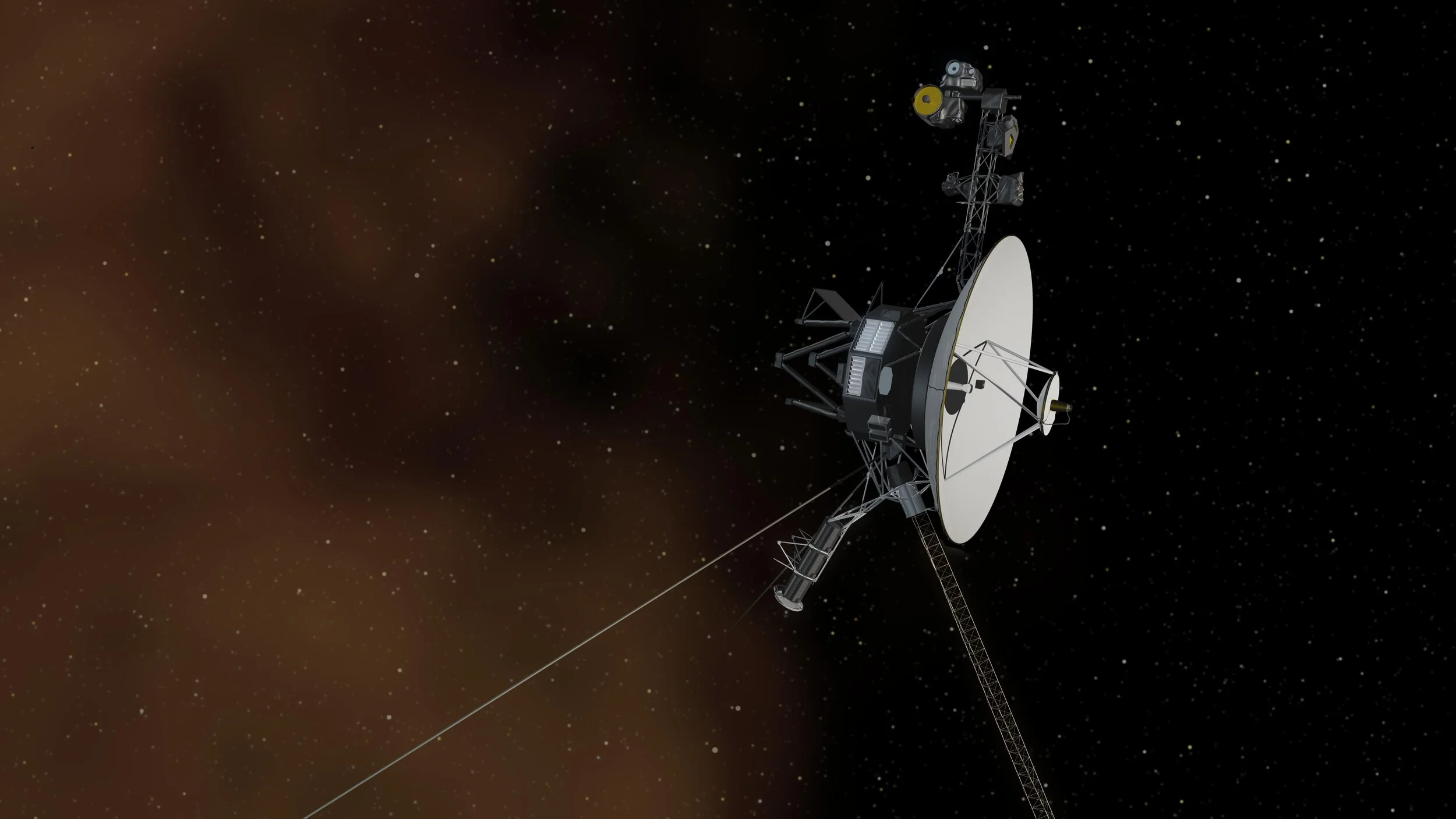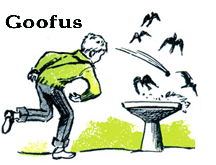Toronto composer Alex Eddington's unorthodox debut A Present from a Small Distant World is many different things all at once. Sometimes dark, sometimes downright silly, certain moments resemble traditional art song, whereas others unfurl strange synthetic textures. Traversing — and often revisiting — music from the past 18 years, it serves as a portrait of his close collaborative relationship with soprano Kristin Mueller-Heaslip, who plays a number of different protagonists throughout the album. While this timespan accounts for some of the album's gleeful heterogeneity, that trait can also be attributed to its underlying inspiration, the so-called Golden Record, the phonographic “earth's greatest hits” disc that was hurled into space in 1977 by the Voyager spacecraft.
All music composed by Alex Eddington, between 2002 and 2020
(track credits and program notes are below)
Voice: Kristin Mueller-Heaslip
Guitar: Daniel Ramjattan
(Additional guitar samples by Rob MacDonald are used throughout the album)
Alto Saxophone: Jennifer Tran
Piano: Joseph Ferretti (Track 6), Elaine Lau (Track 8)
Electronics: Alex Eddington
Recorded by Paul Talbott at Union Sound Company, Toronto: January 2020
Editing/Mixing: Paul Talbott
Producer: Alex Eddington
Mastering: Sage Kim at Lacquer Channel, Toronto
Cover artwork: Michael Hersrud
Released by Redshift Records (TK483) February 19, 2021
Track credits and program notes
1. A Present
From
a Small
Distant World
3:37
Text: Jimmy Carter, 39th President of the U.S.A.
Composed 2020
Voice: Kristin Mueller-Heaslip
Electronics: Alex Eddington
Lyrics
Jimmy Carter’s speech was included on the "Golden Record" launched on the Voyager 1 and 2 spacecraft, 1977:
We cast this message into the cosmos. It is likely to survive a billion years into our future, when our civilization is profoundly altered and the surface of the Earth may be vastly changed. Of the 200 billion stars in the Milky Way galaxy, some -- perhaps many -- may have inhabited planets and spacefaring civilizations. If one such civilization intercepts Voyager and can understand these recorded contents, here is our message:
This is a present from a small distant world, a token of our sounds, our science, our images, our music, our thoughts, and our feelings. We are attempting to survive our time so we may live into yours. We hope someday, having solved the problems we face, to join a community of galactic civilizations. This record represents our hope and our determination, and our good will in a vast and awesome universe.
2. Sonnet XVIII
5:15
Text: William Shakespeare
Composed 2012
Voice: Kristin Mueller-Heaslip
3. HELIOSPHERE
1:41
Composed 2020
Guitar: Daniel Ramjattan
Electronics: Alex Eddington
4. Time Will Erase
20:06
Text: Kristin Mueller-Heaslip, Anna Akhmatova (trans. Don Thomas)
Composed 2009 (rev. 2019)
Voice: Kristin Mueller-Heaslip
Saxophone: Jennifer Tran
(1922 portrait of Anna Akhmatova by Kuzma Petrov-Vodkin.)
5. TERMINATION
SHOCK
1:35
Composed 2020
Guitar: Daniel Ramjattan
Electronics: Alex Eddington
6. Dennis Lee
Songs
9:55
Text: Dennis Lee
Composed 2002 (version for piano 2019)
Voice: Kristin Mueller-Heaslip
Piano: Joseph Ferretti
Program notes
If you grew up reading Dennis Lee’s poetry, as I did, then you’ll probably understand the incredible admiration that I feel toward his work. Perhaps, like me, you experience a wave of childhood nostalgia whenever someone mentions “Willoughby Wallaby Woo” that sends you to your bookshelf, compelled to leaf through Alligator Pie for the umpteenth time. Mr. Lee’s poems are infectious, addictive and, furthermore, inherently musical, as though each one has associated dance steps that only a child (and that shadow-child deep within even the most “mature”) can remember.
And if the preceding paragraph rings true for you, then you probably also understand how difficult it was to choose six [originally eight] poems out of so many. I couldn’t take all my favorites, and I couldn’t use only the most famous ones. In fact, I don’t remember what my criteria were. I just took the eight that seemed right at the time, and I think the child in me was delighted by the fact that these eight didn’t really go together, and that my challenge was to pull them together into something cohesive. Think of this cycle as a loosely unified variety show put on by eight different children, or one child with a particularly active, even spastic, imagination and a hamper-full of grown-up clothes. After all, mood swings and near-hallucinatory imaginings – things that we as adults label as improper, or even insane, and try our hardest to suppress – are an everyday part of the life of a child.
Text copyright
"From Alligator Pie (Macmillan of Canada, 1974; Key Porter Books, 2001). Copyright ©1974 Dennis Lee. With permission of the author."
"From Garbage Delight (HarperCollins Canada, 20 12). Copyright ©1977 Dennis Lee. With permission of the author."
"From Jelly Belly by Dennis Lee (Macmillan of Canada, 1983). Copyright ©1983 Dennis Lee. With permission of the author."
7. HELIOSHEATH
2:44
Composed 2020
Guitar: Daniel Ramjattan
Electronics: Alex Eddington
8. The Stolen Child
12:59
Text: W. B. Yeats
Composed 2011 (rev. 2019)
Voice: Kristin Mueller-Heaslip
Piano: Elaine Lau
9. HELIOPAUSE
2:07
Composed 2020
Guitar: Daniel Ramjattan
Electronics: Alex Eddington
10. Scintillator
6:20
Composed 2008 (version with electronics created 2020)
Text: anonymous spam bot
Voice: Kristin Mueller-Heaslip
Electronics: Alex Eddington
Program Notes
The text is not mine – nor anyone’s; it was delivered as a spam email, with the subject heading "Scintillator". Spammers use software that strings together sentence fragments of online Public Domain texts, as a way of getting past email spam filters. This software is sort of like a computerized John Cage, strolling on an e-beach, picking up seashells without any interest in order or context. And sometimes, the result is striking.
My approach as a composer was first to make my own guesses as to what text-strings come from the same material (bhishma, bahlika, vena etc. made it clear that this is the case), and where the material changes. I treated some words as pivots between sources, whereas other changes are instantaneous. Then worked instinctively, treating each text fragment with full compositional seriousness, only consciously connecting my musical material when I had decided that two texts shared an origin. The shifts between material are frequently as though a radio station has been suddenly switched – although this is a radio that only plays solo vocal music (perhaps with imagined accompaniments).
My setting contains some humour, certainly, but ultimately Scintillator is a mystical piece. The text is the voice of The Internet: sublimely random, beautifully infinite. The singer is a medium for all music, and this is what she channels in these few minutes.
In 2020, for the album version, I added electronics in post-production to differentiate the voice into four abstract characters, each with its own colour, dimension and tone-bed of static. Scintillator is no longer just a peculiar concert piece, but now also works as a broadcast (or four?) from a lonely spacecraft to a distant audience who may not be listening…
11. INTERSTELLAR/To the Makers of Music
2:58
Composed 2020
Text: Inscribed by hand on the Golden Record aboard the Voyager spacecraft
Voice: Kristin Mueller-Heaslip
Guitar: Daniel Ramjattan
Electronics: Alex Eddington












